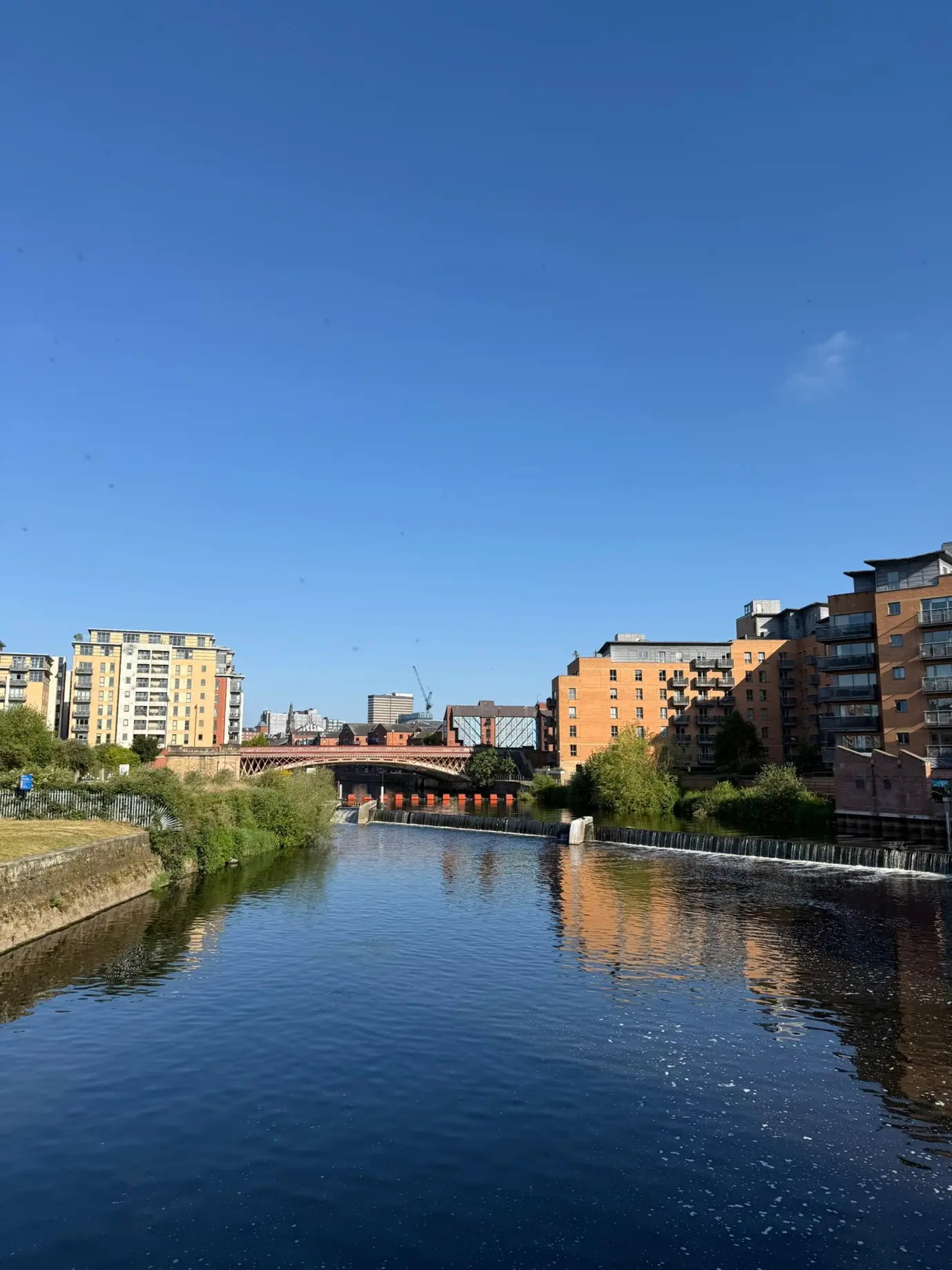UKREiiF 2025: Real estate and infrastructure’s definitive shift from ‘why’ to ‘how’

At UKREiiF 2025, the industry pivoted from ambition to execution. The imperative is now on data-led delivery.
Like our first ‘Meet the Founder’ series for Cohort 6, we’re thrilled to host a blog takeover from David Malcolm, the founder of Optab. With over a decade of experience as a civil engineer and chartered quantity surveyor on major international infrastructure projects, David offers a sharp, personal perspective on the challenges and opportunities he saw at this year’s UKREiiF.
Walking into a sunny UKREiiF this past May, the energy was evident. It was clear from the very first glance at the expansive agenda that real estate and infrastructure investment discussions have moved past the “why” and are now firmly in the “how” stage.
Hearing from giants like HS2 and Vistry Group, strategic thinkers from McKinsey, and industry disruptors like Octopus Energy, all in one place, you can’t help but feel the scale of ambition for a “decade of national renewal” – a key theme from this year.
As a former contracts and commercial lead on large infrastructure projects, and now as the founder of a construction tech startup, I went with a specific objective: to find the gap between this vision and the complex reality of project delivery. Is the industry ready to move beyond the what, and get realistic about the how?
Deep Dive: The key conversations shaping our future
The full UKREiiF agenda maps out the industry’s core anxieties and ambitions. I found myself navigating three critical conversations that honestly reflect the current industry.
1. The delivery crisis: tackling the “£17 billion question“
The title of one panel perfectly captured the mood: “The £17 billion question: why major projects are bleeding cash”. This wasn’t an isolated session. From a Pagabo workshop on ‘protecting investments’ to the conversations in the networking zones, the central theme was the struggle to deliver efficiently and on budget. This is more than an inconvenience; it reduces trust between partnerships and the full supply chain.
The financial overrun starts long before a shovel hits the ground, from pre-construction where designs are misaligned from budgets, forcing costly resubmissions and wasting millions on tenders for objectives that were never viable.
What more could we achieve if all projects were delivered productively and on budget?
2. The process mandate: innovating how we build, not just what we build
The most powerful message, echoed by leaders like Sue McElroy of East West Rail, was the need to “build with less”. This is no longer just about specifying greener materials like in the ‘greener steel/concrete’ discussions; it’s a commercial imperative to innovate our process.
The roundtable on “Productivity, Quality and Sustainability” focused on how AI and data can create that elusive ‘golden thread’ of information. The consensus was clear: our biggest opportunity for savings and efficiency is by fundamentally rewiring our front-end and delivery process with discipline, a data centric structured approach, and robust governance.
As Simon Pope from West Yorkshire Combined Authority stated that to innovate, we must have the willingness to fail. Are we embracing new innovative ways of working fast enough to meet the pipeline of work ahead of us?
3. The people & tech conundrum: “I’m line managing a robot!”
This fantastic session from McKinsey brought the human side of this transformation into sharp focus. Panels on ‘mind the skills gap’ and ‘finding our future workforce’ confirmed we have a people problem.
The future worker will need to be an AI-assisted professional, utilising new tools to enhance their productivity. You can’t build the future-ready workforce if the foundational data they rely on is untrustworthy or inaccessible. You must fix the foundations first.
My personal reflection: we have to get the basics right
Ironically, my train back to Edinburgh from Leeds was 3.5 hours late. It reinforced the bigger picture: whether it’s transport, utilities, or housing, we’re wrestling with outdated systems and increasing expectations.
The good news is, nobody at UKREiiF seemed under any illusions – we know the problems, and there’s a collective will to solve them.
To fix the delivery crisis, we need real-time visibility on commercial performance, so issues can be caught and corrected before they escalate.
We need structured, interoperable data that supports better decisions at every level, from design to carbon reporting.
To address the skills gap, we need to be open to utilising AI and new technologies and stop burying our best people in clerical tasks.
That’s why I started Optab – to help fix these fundamentals. When data is trusted, commercial workflows are automated, and teams are empowered with intelligence – the ambition I saw at UKREiiF becomes genuinely achievable. If you’d like to start your ‘how’ journey together with Optab, please reach out for a follow‑up conversation.